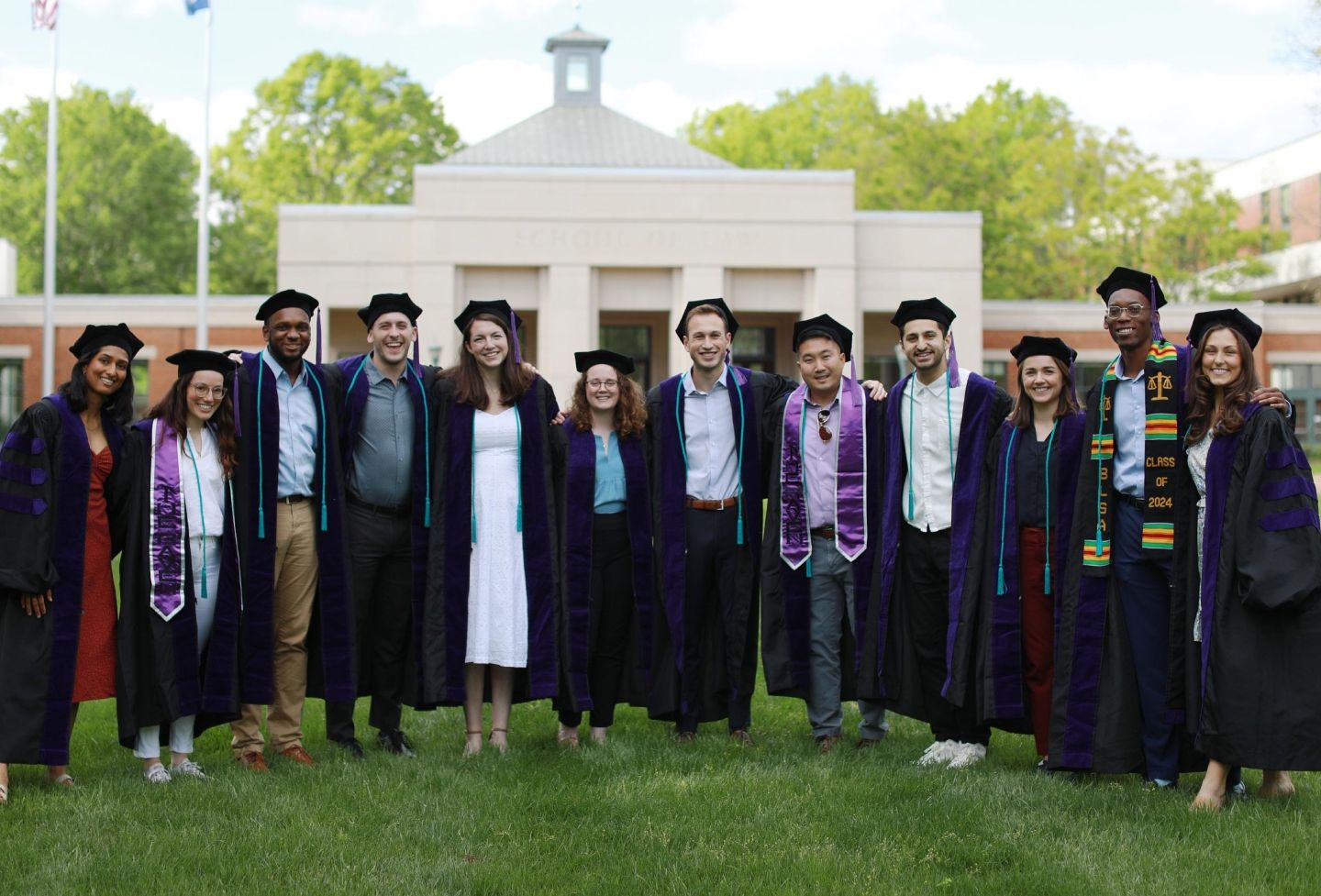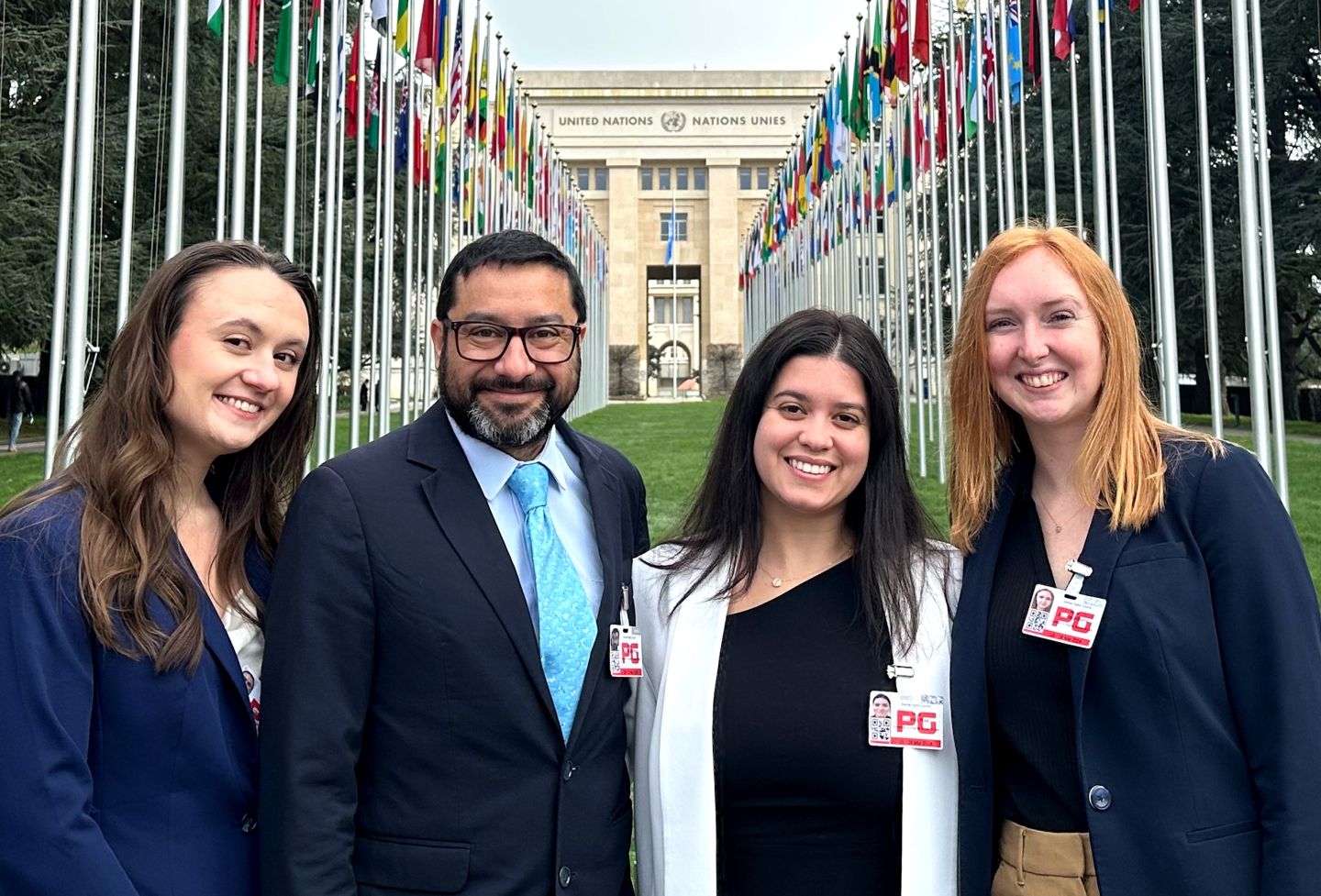Iraqi National Congress Representatives Describe Plans to Create Democracy

The war in Iraq is proof enough to Dr. Nareen Dezaye and Lara Dezaye, representatives of the Iraqi National Congress (INC) who spoke at the Law School March 31, that their exile group's efforts to organize a new democratic government are fully justified, although they came on an advocacy mission, ready to win over any audience members with lingering antiwar sentiments. Other INC officials, now in Iraq preparing for the political aftermath of the war, had been slated to speak in February, but their appearance was canceled by a snowstorm.
Both women described their personal experiences escaping Iraq. Lara, a graduate of George Mason University, was carried out as an infant after her father returned to Baghdad from an embassy staff job in London only to be tortured for being Kurdish.
Dr. Nareen Dezaye's family fled the country in 1996 after the Iraqi Republican Guard invaded Kurdish areas of Northern Iraq. Born in Arbil, Iraq, she received her degree in medicine and general surgery in 1998, and accreditation in child and adolescent psychiatry in 2000. She was granted refugee status in Syria in 2001 and worked as an Arabic and Kurdish translator and interpreter for the United Nations High Commissioner for Refugees in Damascus. She resettled to the United States in 2002, and currently works with the INC's Office of Mobilization and Coordination as Human Rights Coordinator.
Their presentation began with a catalog of atrocities allegedly committed by Saddam Hussein's government, among them the elimination of 182,000 Kurds in 1998 (who, they said, were murdered and buried in mass graves in Saudi Arabia), 60,000 Kuwaitis who disappeared during the Iraqi occupation of Kuwait in 1991, and the gassing of 15,000 people in the Kurdish town of Halabja in 1988, which they say has always been explained to the Iraqi public as an Iranian attack. They also showed a gruesome, smuggled videotape of the sadistic execution of southern Iraqi Shiites merely accused of opposing Hussein's rule.
An umbrella organization for coordinating all exile Iraqi opposition groups, the INC was formed in 1992 in Vienna and includes the Kurdish Democratic Party, the Patriotic Union of Kurdistan (the two main groups), the Constitutional Monarchy Movement, the Supreme Council of the Islamic Revolution in Iraq, and the Iraqi National Accord. "All ethnicities and religions are represented, including Sunni Muslims and Christians," said Dr. Dezaye. Assumed to have the backing of the United States, the INC maintains offices in London, Washington, D.C., Amman, Tehran, Beirut, Damascus and the towns of Arbil and Sulaiymania in the Kurdish-controlled northern Iraq.
"Our goal is the overthrow of Saddam Hussein and to replace him with a democracy, to empower the Iraqi people to enter the international community, and to institute the rule of law," Dr. Dezaye said.
The INC organized the Iraqi volunteers recently trained at a base in Hungry to assist American forces as translators and Dr. Dezaye expects the American administration of her country to last from six to 18 months. Meanwhile the INC hopes to organize a parliamentary system and the election of a national leader, a job they would prefer go to INC leader Ahmed Chalabi, but they acknowledged that former exiles are likely to be distrusted, at least initially, by Iraqis conditioned by years of Hussein's propaganda messages. The war's aftermath could be chaotic, they said. She said she expects a Kurdish "confederation" to form under a national federal structure. Iraq's economy, which has no private industry, is based mainly on oil sales but agriculture holds some prospect for export trade, she said.
Dr. Dezaye tried to spark a debate over the merits of the war but the crowd resisted it as a moot issue and preferred to ask questions. On whether Iraq was socially capable of supporting a democratic government, Dr. Dezaye pointed to Kurdish-controlled Iraq, which she said has developed democratic life under the protection of the northern no-fly zone. "They've ruled themselves for the last 12 years. The people will be receptive to democracy."
Dr. Dezaye said nothing tangible has been done on a new constitution for Iraq and that she does not expect a democratic government there to inspire democratization in neighboring countries.
Founded in 1819, the University of Virginia School of Law is the second-oldest continuously operating law school in the nation. Consistently ranked among the top law schools, Virginia is a world-renowned training ground for distinguished lawyers and public servants, instilling in them a commitment to leadership, integrity and community service.


